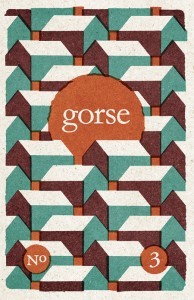Children, Madonna and Child and Death and Transfiguration move relentlessly through the three stages of Robbie’s life. But Davies consciously breaks the rules of linear time as he moves backwards and forwards exploring the jumble of Robbie’s memories, his youth, adulthood and old age. Davies does not want us to just look at Robbie’s life, he requires us to witness it, and presents each fragment as if part of a body of evidence.
Although at one level we know that these are films set in the Liverpool of the 1970s and 1980s, because that is when they were made, Trilogy is essentially set in a perpetual present. We all live our lives in that way, never questioning what we mean by ‘now.’ And yet the past is always present and, through memory, we re-enact it, again and again.
In one of the most ineffably moving scenes in Children, an eleven-year-old Robbie and his mother make a journey through Liverpool by bus. In one’s memory the scenes one plays out operate from just one point of view. And so it is with this journey: the camera, still and unblinking, observes Robbie and his mother from one side as they sit, mother looking ahead and robbie writing in the mist of his breath on the window.
Courageously, Davies holds this shot for a full two minutes. There is no dialogue and no sound, other than a haunting oboe lament. Then he switches the angle and we are face on to the mother and child. The sound clicks in, first the labouring engine of the bus and then a sob, and we realise that Robbie’s mother is crying. She continues to look ahead as the tears stream down her cheeks. Robbie looks at her, confusion and fear in his face, but neither of them say anything.
Davies offers no explanation of the scene on the bus. How could there be an explanation? This is a childhood memory and so many of those memories, things one is too young to understand at the time, remain locked in mystery forever. Mam cried, and that is all Robbie remembers. It is all he needs to remember.
This is a short extract from an essay by Bobby Seal published in the Irish journal gorse. Issue three of gorse is available for purchase here.



Bobby,
Respect for getting a piece in Gorse!
It’s intriguing how Freud still has a hold on ways of thinking about human relationships. The title and the idea that we don’t quite know how the tensions and fear of Mam crying crafted the Father Robbie became.
Bus travel in itself is a kind of cinema. In my bus journeys at that time with my Mam on the 82c to Garston and back there was no drama on the bus but much took place in the action that passed by the frame made by the window. The 82c passed through the City Centre, the Dingle, Aigburth providing a three act play of the human condition. It was startlingly different to the journey on the 41, C1,C3 or F7 to Birkenhead then Over The Water.
And those bus journeys probably crafted ‘psychogeography’ into my ‘nowness’.
D